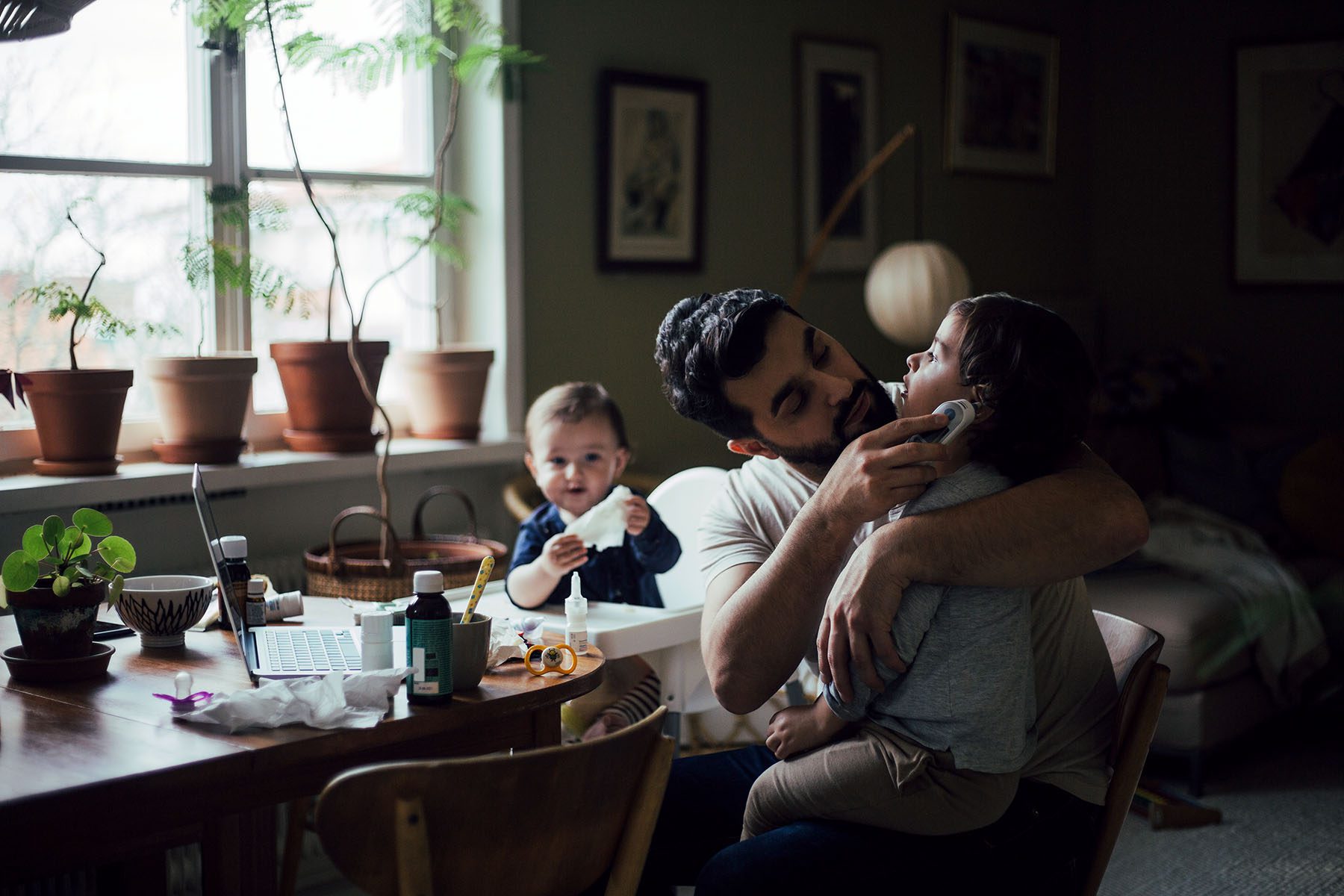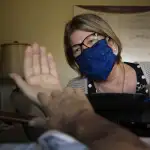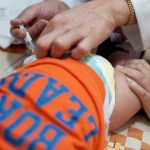Catherine Dicicco and her husband both got vaccinated, then boosted. They wore masks and limited social activities to outside, with a small circle of friends. Dicicco, an occupational therapist in Tennessee, just wanted to keep her infant twins from getting COVID-19.
But on January 5, the twins’ first birthday, both boys tested positive for the virus. Soon the whole family fell ill. And while for Dicicco and her husband the virus was like a bad cold or a mild flu, shortly after the positive test one of her sons ended up in the hospital for two days.
“I literally hear his every breath. And he couldn’t get air through, it was so swollen,” she recalled. “I tried to give him a bottle, and it was a disaster.”
He’s home now, but doctors warned Dicicco to keep a close eye on him. He’s not fully recovered — and neither is she, with a lingering hacking cough.
“People who say, ‘I’m fine, I don’t need to wear a mask’ — it’s a disregard for other people’s safety because of their own desire for comfort,” she said. “It’s not just you getting COVID. It’s you spreading it to my children, and they end up in the hospital through no fault of their own.”
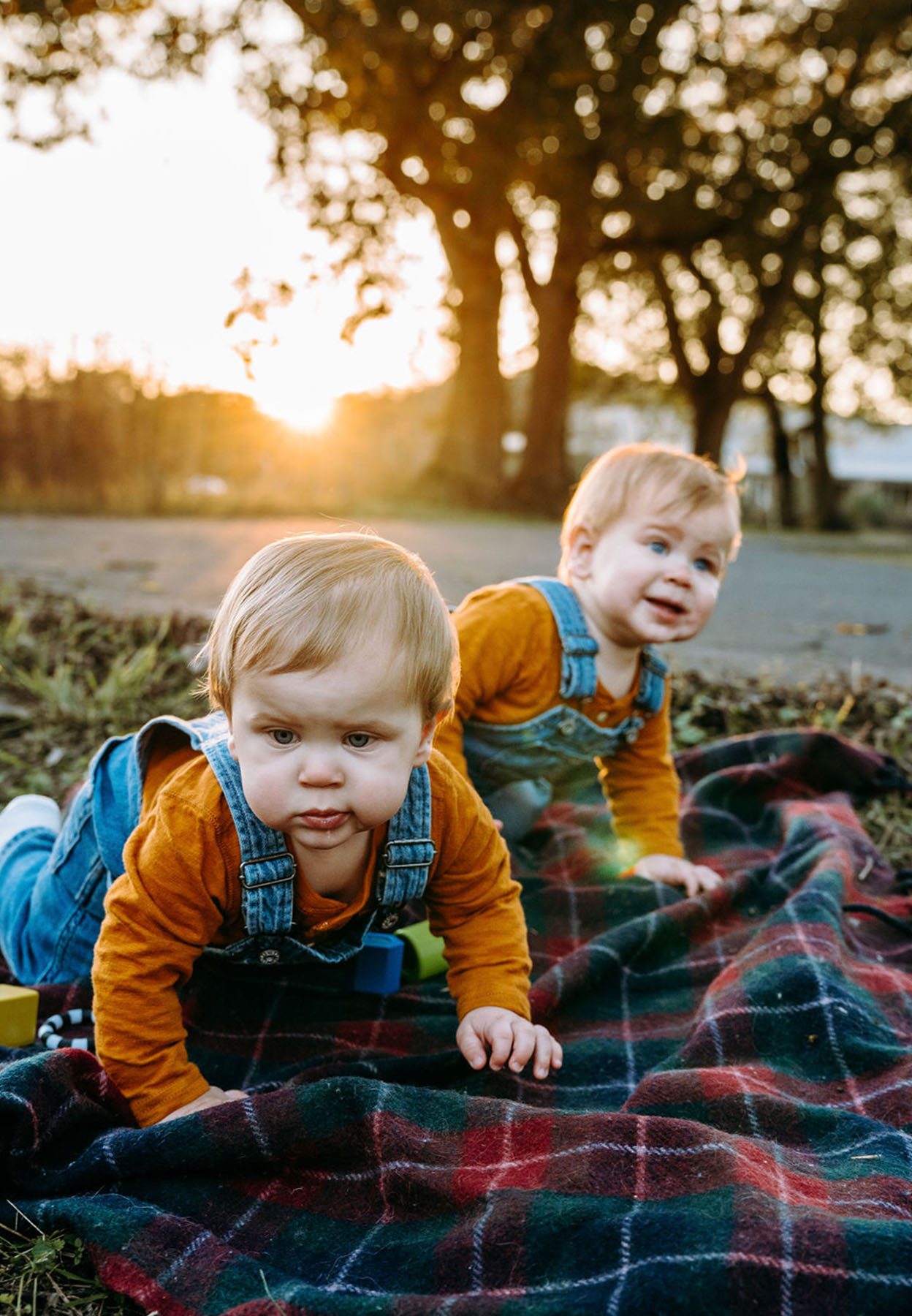
While hospitalization rates for kids under 5 are still lower than for most other age groups, parents of children too young to get a COVID-19 shot aren’t comforted by health officials’ insistence that the virus mostly affects the unvaccinated. Many are grappling with what happens when their kids get sick: They can’t go to day care, and government protections initiated in the early days of the pandemic — such as emergency paid sick leave, guaranteed time off to care for relatives with COVID-19, or even temporary stimulus checks — are long gone.
Cases are surging, with the new omicron variant appearing to be more contagious. But options to avoid infection are increasingly limited, especially for those whose jobs require them to work in person or who don’t have an employer that offers paid time off for illness. And so as more young children test positive for COVID-19, more parents — and in particular, mothers, who research shows bear the majority of parenting responsibilities — are caring for their COVID-positive children while battling infection themselves. In the best-case scenario, that means sleepless nights with what can be weeks of family illness and outside support networks cut off as a result of isolation protocols.
More than half a dozen mothers told The 19th they are exhausted. Several said they feel forgotten by an American public that is ready to move on from the pandemic.
“On the one hand, I get it. I don’t want everyone else’s life to stop because I have a kid. But it is extremely saddening and frustrating when you have mask mandates going away,” said Lisa Kays, a 45-year-old clinical social worker from Bethesda, Maryland, whose two young sons — one is 3 and the other 6 — both recently tested positive for COVID-19. “The invisibility of my children and us as a family has been mind-blowing to me. It’s almost like you start to question your own reality.”
Evidence from the other countries suggests the omicron phase could be relatively quick. So even if local or state officials or the federal government were inclined to pass laws supporting child care, or offering some kind of guaranteed paid leave or other financial support for parents, their action may not take effect until after the wave has passed.
“It puts parents in an untenable situation. And I’m not sure the federal or state-level or community-level supports are there,” said Jennifer Kates, a senior vice president and global health expert at the nonpartisan Kaiser Family Foundation. “Even if your kid doesn’t require hospitalization, if they get very, very sick, that is a tough situation for a parent.”
Kates said she has heard from countless parents with young children. They’re terrified of what to do if a child gets sick. Even if the infection is mild, who will take care of the family for five to 10 days of isolation?
The burden is especially acute for working parents and single parents, she added.
“You want to take care of your kids. You’ll do anything you can, and you’ll probably get infected yourself,” she said.
Dicicco is currently using her paid time off to care for her children; if it runs out, she will have to take unpaid days. She has health insurance, but her family’s high-deductible health plan means she expects to have to pay thousands of dollars out of pocket.
Even still, she is on the luckier end. Most low-wage workers do not have access to paid sick leave or vacation time, according to the Bureau of Labor Statistics. People in part-time jobs — a group that is disproportionately women — are even less likely to have those benefits. That means if their children fall sick, staying home to care for them also means forgoing income or possibly losing their jobs.
“If your child is ill — even if your little one has hopefully mild disease — someone has to be monitoring the little one for at least five days to make sure the child doesn’t develop a significant fever. You can’t ignore the fact that a child under 2 and a child under 5 hasn’t been vaccinated,” said Ruth Faden, a bioethicist at Johns Hopkins University. “You add that stress to the stress of worrying about whether you can manage financially, and whether you can hold onto your job, and a bunch of other stuff, and it’s very difficult.”
Even for families with access to day care, an exposure to the virus can be destabilizing. Depending on the day care’s rules, children younger than 5 who are exposed may have to stay home for more than a week — a new layer of complications for working parents, and in particular working mothers, who over the course of the pandemic have shouldered the majority of unanticipated child care needs and who have often had to cut back on their own work.
The absence of robust child care, guaranteed income support, or flexibility from employers only adds to the burden, Faden said. Parents are dependent entirely on their employers to be understanding if a child is exposed to COVID-19 or tests positive for the virus.
A vaccine for kids this young may not be available for months. In December, Pfizer reported that the formulation it had attempted for kids 2 to 5 — a far lower dose than what is given to adults — did not prove effective against the virus. The company is now working on a three-shot regimen for these children and expects to submit data for federal review at some point in the first half of 2022. Moderna, the other major vaccine developer in the United States, said Thursday that it expects to have data for these children at some point in March.
Meanwhile, the transmissibility of omicron means that if one person in a family is infected, the entire household is likely to be so as well. That could mean weeks of illness — and simply making it through is exhausting.
“We’re hanging on by a [expletive] thread,” said Christina Wallace, a 38-year-old business school professor. Wallace has a 2-year-old daughter and is seven months pregnant.
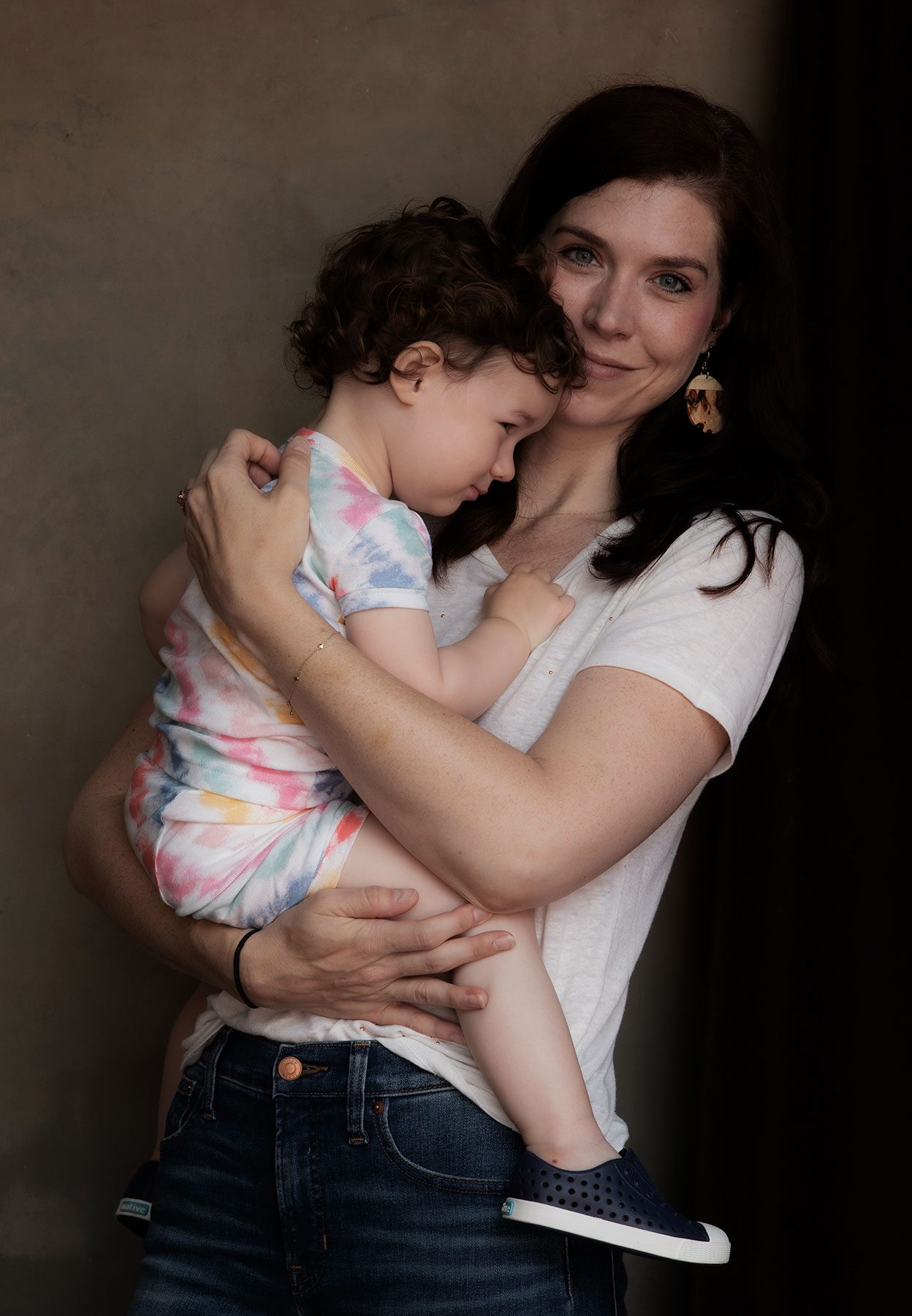
Wallace first began feeling ill around Christmas. Luckily, she had stockpiled a stash of at-home COVID-19 tests in November — right when cases had begun to climb again. But she kept testing negative. Finally, one of her tests came back positive. So did a test for her 2-year-old. Her husband consistently tested negative but displayed all the same symptoms she did.
“The thing you’ve been dreading for two years is on your doorstep,” she recalled. “In some ways, knowing omicron was less problematic than [the COVID-19 delta variant] helped. But that’s an aggregate. It’s not your specific case.”
It’s been more than two weeks, and Wallace is now no longer testing positive. But she still feels completely drained. She’s spent her entire illness caring for her child — a toddler who is still too young to blow her own nose. She can’t call a babysitter for help.
“I’m seven months pregnant with COVID myself, holding my toddler so she can sleep while my husband is in the other room hacking up a lung,” she said. “No one’s going to set foot in our apartment. It’s full of germs.”
Until her daughter is vaccinated, any further exposure to the virus means she cannot go to day care for 10 days. Wallace would have to keep paying for day care, while also paying out of pocket for two weeks of babysitting or — more likely — caring for her child while staying on top of her own work.
“I don’t feel like parents of small children have been considered since day one of the pandemic. Somehow that piece we glide over,” she said. “There’s this assumption that someone will take care of them, and in reality it’s mostly been women.”
